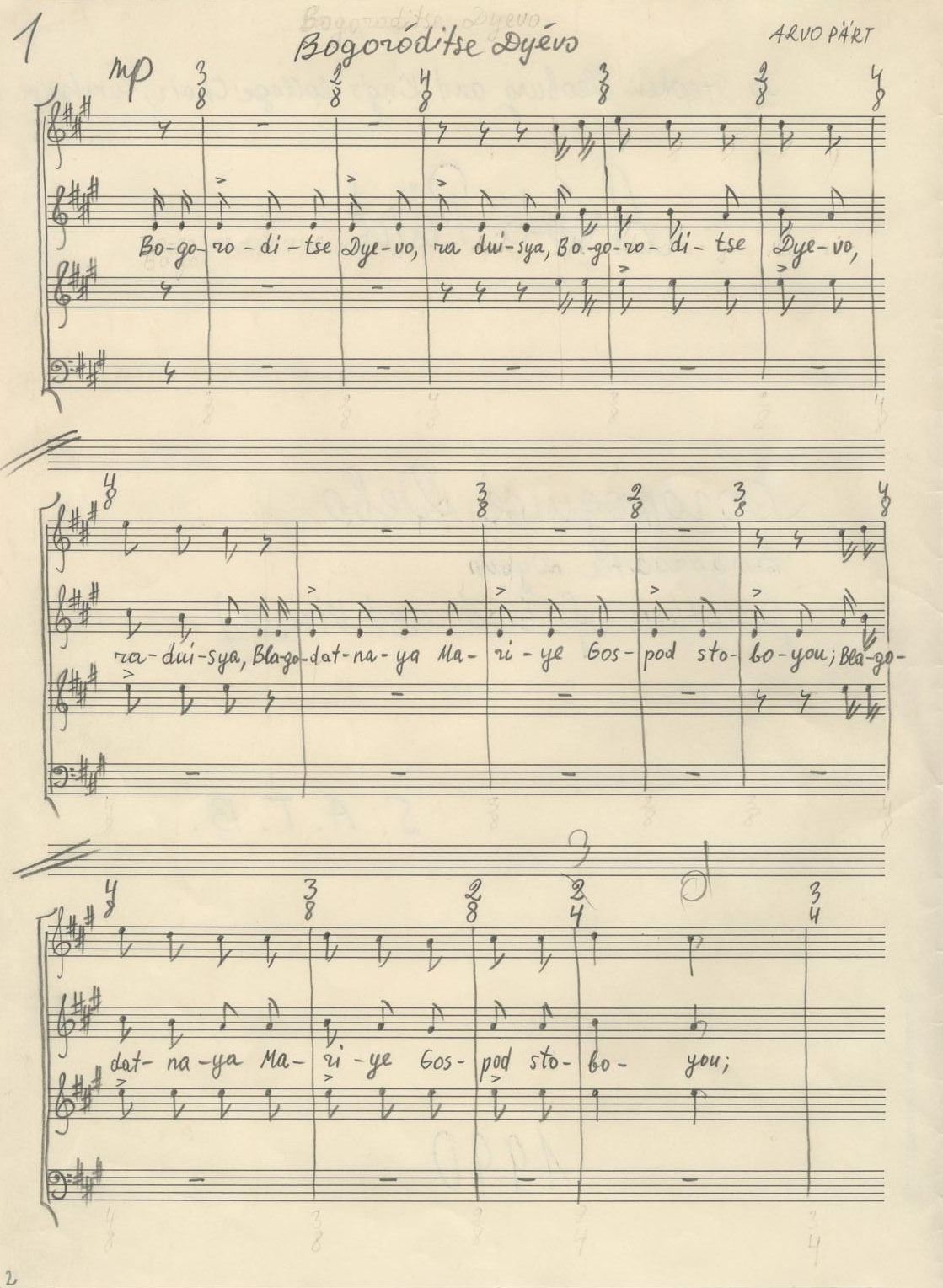Scored for
Duration
1 min
Short description
Bogoróditse Djévo was completed in 1990 on commission by the King’s College Choir, Cambridge. It premiered on Christmas Eve of the same year as part of the Festival of Nine Lessons and Carols performed by the choir, conducted by Stephen Cleobury.
The piece is based on a Church Slavonic text from the Orthodox Book of Prayers. The hymn to the Virgin Mary, used in the Orthodox tradition, differs by the Latin Ave Maria by a couple of nuances in the text. Also, Pärt’s short and concentrated musical prayer is dominated by vibrant joy instead of the usual lyrical mood.
The four and sometimes eight-part canticles of the composition, the phrases that seem to be half-spoken, and the full and joyful sonic value of the parallel chords, draw from the musical tr…
World premiere
Concert-service: Fifth Lesson
King's College Choir, Cambridge , Stephen Cleobury (conductor)
Other titles
Completion year
Dedication
Commissioned by
Scored for
Duration
Publishers
Language
Vocal text
from the Orthodox prayer tradition
Богородице Дево, радуйся,
Ълагодатная Марие, Господь с Тобою:
Благословена Ты в женах
и Благословен Плод чрева Твоего,
яко Спаса родила еси душ наших.
O Mother of God and Virgin, rejoice!
O Mary, full of grace,
the Lord is with thee;
blessed art thou among women,
and blessed is the Fruit of thy womb,
for thou hast borne
the Saviour of our souls.
